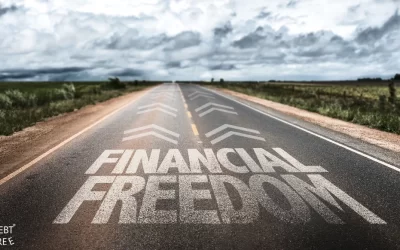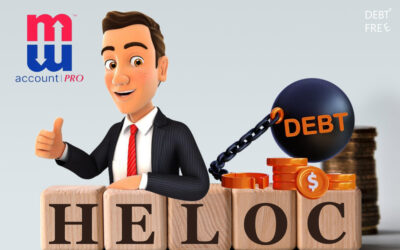

The debt crisis related to mortgages in the United States is a complex issue that has evolved over the years, shaped by economic factors, housing market dynamics, and policy decisions. Here’s an expanded overview of this crisis:
Eliminating Mortgage Debt Crisis and Achieving Financial Independence
Imagine a life free from the shackles of mortgage debt, where you can achieve true financial freedom. The journey begins by understanding the lessons learned from the subprime mortgage crisis and the subsequent housing market crash. The federal reserve and various mortgage lenders have made strides in stabilizing the mortgage market, ensuring that mortgage products are designed to protect borrowers. By educating ourselves about mortgage rates and financial instruments, we can navigate this landscape wisely. Don’t be just another statistic of the debt crisis; instead, empower yourself by choosing sustainable mortgage loans that align with your financial goals.
In the wake of the global financial crisis, it’s essential to learn about the causes of the crisis and how subprime lending contributed to the housing crisis. The financial crisis inquiry report highlights the importance of making informed choices, whether you’re a subprime borrower or not. By leveraging the insights from the mortgage bankers association and understanding housing policy, you can position yourself to take advantage of opportunities in the security market and credit market. With determination and the right knowledge, you can Eliminate Your Mortgage Debt and step boldly into a future of financial independence.
Rising Home Prices and Affordability Issues
In recent years, home prices in the U.S. have surged, particularly in metropolitan areas. This rapid increase has made homeownership less affordable for many Americans, forcing potential buyers to take on larger loans. As a result, mortgage debts have risen, pushing borrowers into a higher Debt-to-Income (DTI) ratio, which can limit their financial flexibility.
Subprime Mortgages and Risky Lending Practices
The 2008 financial crisis exposed the dangers of subprime mortgages—loans offered to borrowers with poor credit histories. These mortgages often carried high interest rates and unfavorable terms, leading to widespread defaults. Although regulations have since tightened, there are growing concerns that risky lending practices are returning, which could set the stage for another financial crisis.
Impact of Economic Conditions
Economic downturns, such as the recession triggered by the COVID-19 pandemic, have significantly impacted homeowners. Job losses and reduced income levels have made it difficult for many to keep up with mortgage payments, leading to increased foreclosures. This, in turn, can drive down home values, creating a cycle of debt and economic instability.
The Link Between Student Loan Debt and Mortgage Challenges
The burden of student loan debt has made it increasingly difficult for young professionals to save for a down payment or qualify for a mortgage. With high monthly loan repayments, many find home-ownership out of reach. This has contributed to declining home-ownership rates among younger generations, affecting the overall housing market.
Government Programs and Support for Homeowners
In the wake of the housing bubble and the financial crisis, it’s inspiring to see how government programs are stepping up to support homeowners. The Federal Housing Administration has been pivotal in providing access to mortgage credit, ensuring that individuals can navigate the aftermath of the housing crash. These initiatives not only aim to stabilize the financial markets but also focus on empowering families to achieve their dreams of home-ownership, even after the subprime crisis that shook the Global Financial System.
The Department of Housing and Urban Development plays a crucial role in this endeavor by facilitating financial products designed to protect consumers from the perils of subprime loans. With the housing and community development act, the government aims to enhance financial stability and restore trust in mortgage lending practices. As central banks around the world collaborate, the focus remains on ensuring that homeowners are equipped with the resources they need to thrive, overcoming the blame for the subprime failures of the past.
By addressing the challenges posed by the financial sector and promoting responsible mortgage originators, we can collectively work towards a more resilient housing market. The commitment to providing loans during the crisis showcases a proactive approach to safeguarding the future of homeowners and reinforcing the market share of reliable lending institutions. Together, we can transform the lessons learned from the financial crisis inquiry commission into actionable strategies that foster a brighter, more secure future.
Loan Modification and Refinancing Programs
In response to the mortgage crisis, the government has implemented several programs aimed at helping struggling homeowners. These include:
- Loan modification programs that adjust loan terms to make payments more manageable.
- Refinancing options that allow borrowers to secure lower interest rates and reduce their monthly mortgage payments.
However, the effectiveness of these programs varies, and many homeowners remain unaware of the resources available to them.
The Importance of Financial Education in Home-ownership
Achieving home-ownership is a dream for many, and the journey begins with understanding the importance of financial education. When you are equipped with the knowledge of how to manage your finances, you can make informed decisions that lead to successful home-buying. By learning about factors like house prices and market trends, you empower yourself to seize opportunities and avoid pitfalls.
Investing in financial education not only prepares you for the complexities of home buying but also enhances your long-term stability as a homeowner. This knowledge transforms your dreams into actionable plans, ensuring you can navigate the path to home-ownership with confidence. Embrace this essential education, and watch as your aspirations become a reality!
Empowering Borrowers with Financial Literacy
Increasing financial literacy is essential for helping consumers navigate the mortgage landscape. Understanding key aspects such as:
- Interest rates and how they affect loan payments
- Amortization schedules and their impact on long-term debt
- The importance of maintaining a good credit score
By equipping individuals with this knowledge, borrowers can make informed financial decisions and avoid falling into excessive debt.
The Money Max Account: A Path to Faster Debt Elimination
One powerful tool for achieving financial freedom is the Money Max Account. This innovative financial system helps homeowners pay off their mortgage debt in just 5 to 7 years, rather than the traditional 30-year term. The Money Max Account works by:
- Strategically utilizing available income to cancel interest
- Maximizing financial efficiency without requiring lifestyle changes
- Accelerating debt repayment to build equity faster
Future Outlook: Moving Toward a More Stable Housing Market
As economic conditions evolve, addressing the mortgage debt crisis will require collaboration between policymakers, financial institutions, and educators. Key areas of focus should include:
- Promoting affordable housing initiatives to ensure home-ownership remains within reach for more Americans.
- Enhancing financial education programs to equip borrowers with the tools needed for smart financial management.
- Encouraging responsible lending practices to prevent another crisis driven by risky mortgages.
Conclusion
The mortgage debt crisis in the U.S. is a complex issue influenced by rising home prices, economic instability, and financial literacy gaps. Addressing these challenges requires a comprehensive approach that includes smarter lending policies, better consumer education, and strategic debt management solutions.
One of the most promising solutions is the Money Max Account, which provides a strategic way to eliminate mortgage debt efficiently. By leveraging tools like this, homeowners can regain control of their finances, Achieve Debt Freedom faster, and work toward a more financially secure future.
By implementing these strategies, we can build a more stable housing market and empower individuals to achieve lasting financial independence.









